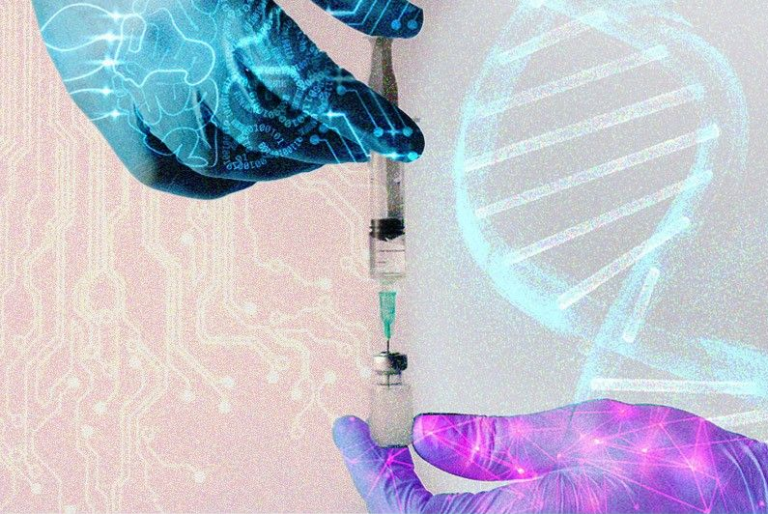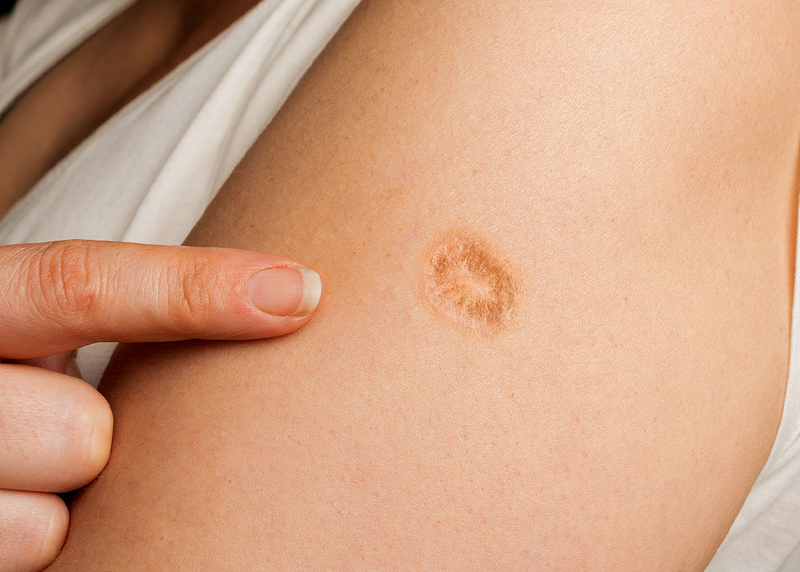Findings from a new study published in the Journal of Medical Internet Research Public Health Surveillance showed that a new artificial intelligence (AI) tool is able to predict whether someone is willing to get a COVID-19 shot. Researchers at the University of Cincinnati and Northwestern University aimed to determine the predictive power of a small interpretable set of judgment variables using machine-learning algorithms to profile and predict an individual’s likelihood of getting a COVID shot and interpret which judgment variables are important for accurate prediction.1
Machine-learning is a branch of AI and computer science that focuses on using data and algorithms to enable artificial intelligence to imitate the way that humans learn, gradually improving its accuracy.2
Nicole Vike, PhD, lead author of the study and senior research associate at University of Cincinnati College of Engineering and Applied Science, said:
COVID-19 is unlikely to be the last pandemic we see in the next decades. Having a new form of AI for prediction in public health provides a valuable tool that could help prepare hospitals for predicting vaccination rates and consequential infection rates.3
Vaccine Refusal During COVID Pandemic Drove Researchers to Develop AI Tools to Predict Behavior
Despite federal, state, and employment vaccine mandates, many Americans refused to get COVID shots, which led researchers to study the psychology underlying vaccine refusal and differences between people who were fully vaccinated versus those who were not. The researchers state that previous research confirms that reward and aversion judgments are important when making vaccination choices, but there have been no studies using cognitive science with machine-learning to predict if people will or will not take a COVID shot.4
The researchers surveyed 3,476 adult participants across the United States in December 2021 asking questions about their demographics, COVID shot status (whether or not they were fully vaccinated), and COVID precautionary behavior, such as mask wearing, social distancing, hand sanitizing, and not gathering in large groups. Participants also completed a picture-rating task using images from the International Affective Picture System. Images were rated on a Likert-type scale to determine the degree of liking and disliking.5 The Picture System included a large set of emotion provoking color photographs in six categories: sports, disasters, cute animals, aggressive animals, nature and food.6
Dr. Vike said the goal of the picture exercise was to quantify mathematical features of people’s judgments when they see mild emotional stimuli. Measures from this task include concepts familiar to behavioral economists or people who gamble such aversion to risk (the point at which someone is willing to accept potential loss for a potential reward) and aversion to loss (the willingness to avoid risk, such as by purchasing insurance). Hans Breiter, a professor of computer science at University of Cincinnati said:
The framework by which we judge what is rewarding or aversive is fundamental to how we make medical decisions.7
Study Illustrates AI Can Make Predictions About Human Attitudes About Vaccines
Findings from the study show that artificial intelligence can make accurate predictions about human attitudes with minimal data or reliance on costly clinical assessments. Aggelos Katsaggelos, PhD, a professor of electrical engineering and computer science at Northwestern University, said:
The study is anti-big-data. It can work very simply. It doesn’t need super-computation, it’s inexpensive and can be applied with anyone who has a smartphone. We refer to it as computational cognition AI. It is likely you will be seeing other applications regarding alterations in judgment in the very near future.8
The researchers believe that predicting vaccine uptake may assist in vaccine supply chain and administration logistics by identifying geographical areas that may need more or fewer vaccines, targeting messaging to locations with predicted low vaccine uptake, and preparing areas that are more likely to experience more cases of infection that impact health services and infrastructure.9
If you would like to receive an e-mail notice of the most recent articles published in The Vaccine Reaction each week, click here.
Click here to view References:2 IBM. What is ML?
3 Miller M. Powerful new AI can predict people’s attitudes to vaccines. UC News Mar. 18, 2024.
4 Vike NL et al. Predicting COVID-19 Vaccination Uptake Using a Small and Interpretable Set of Judgment and Demographic Variables: Cross-Sectional Cognitive Science Study. Journal of Medical Internet Research Public Health Surveillance 2024; 10.
5 Ibid.
6 Miller M. Powerful new AI can predict people’s attitudes to vaccines. UC News Mar. 18, 2024.
7 Ibid.
8 Ibid.
9 Vike NL et al. Predicting COVID-19 Vaccination Uptake Using a Small and Interpretable Set of Judgment and Demographic Variables: Cross-Sectional Cognitive Science Study. Journal of Medical Internet Research Public Health Surveillance 2024; 10.














6 Responses
I’m sure not. Total BS nonsense.
Unbelievably sad to see that some scientists would work on this rather than making the world a better place. In addition, do they really think that the human brain we still know very little about works that simply!
Wish we could design an AI tool to select random answers to these types of data gathering surveys that skew their data sets and screw up their AI models. That’s a better plan to me.
I like that idea too. Or, a way to destroy their computations, period.
They must be running scared if it is true that 51% of the USA population accepted the COVID shots. That is just barely over half. With 49% refusal that must be pissing off those in charge to a massive degree.
AMEN TO THAT ! Hopefully more will awake out their slumber and realize they have been bamboozled!